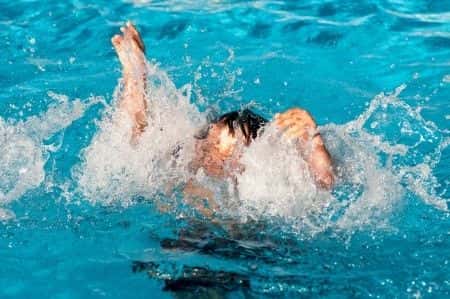Boy Dies in Swimming Pool After Lifeguards Fail to Respond
This case involves a thirteen-year-old boy who was swimming in a public pool. There were nine lifeguards around the pool. The boy began having trouble staying afloat, but none of the lifeguards noticed him struggling in the water. The boy was underwater for a long period of time before a family friend noticed him and tried to rescue him. There were no flotation devices in the vicinity. The friend was unable to rescue the boy so he told the boy’s mother and she alerted the lifeguards. The pool manager only ordered the lifeguards to look for the boy around the pool and did not order them to go into the water and try to find the boy. The boy was underwater for approximately 10 minutes before the lifeguards pulled him from the pool. The boy died from staying underwater so long. The boy’s parents brought a wrongful death lawsuit against the city for negligent supervision of the pool and claimed that the lifeguards were negligent in not responding properly to the boy’s drowning.
Question(s) For Expert Witness
1. Is the operator of a public pool liable for the drowning death of a boy if lifeguards on duty fail to rescue him in time?
Expert Witness Response
 In general, the owner or operator of a public pool owes a legal duty to swimmers to act reasonably to prevent drowning accidents and also has a duty to have proper safety equipment nearby in case there is a drowning accident. The city was probably negligent in its supervision of the pool because it did not have proper safety equipment that could have saved the boy’s life such as life preservers and a shepherd’s hook which could have been used to try to pull him from the pool. A public pool also has a legal duty to swimmers to make sure that all its lifeguards are properly trained to respond quickly if an accident occurs. This means a public pool must make sure that lifeguards sit in elevated chairs and are “poised and ready” to act if an emergency occurs. The most common problem that pool operators have is when lifeguards lose control over an overcrowded pool and have trouble noticing a swimmer in distress quickly enough to save them. In cases like this, the pool operator may be found liable because proper safety procedure requires that a lifeguard can scan a pool accurately at all times and concentrate so that they can rescue a distressed swimmer within the first 10 second after a drowning accident. Since the lifeguards in this case were unresponsive and allowed the boy to be submerged under water for 10 minutes, the city is most likely liable for the boy’s death.
In general, the owner or operator of a public pool owes a legal duty to swimmers to act reasonably to prevent drowning accidents and also has a duty to have proper safety equipment nearby in case there is a drowning accident. The city was probably negligent in its supervision of the pool because it did not have proper safety equipment that could have saved the boy’s life such as life preservers and a shepherd’s hook which could have been used to try to pull him from the pool. A public pool also has a legal duty to swimmers to make sure that all its lifeguards are properly trained to respond quickly if an accident occurs. This means a public pool must make sure that lifeguards sit in elevated chairs and are “poised and ready” to act if an emergency occurs. The most common problem that pool operators have is when lifeguards lose control over an overcrowded pool and have trouble noticing a swimmer in distress quickly enough to save them. In cases like this, the pool operator may be found liable because proper safety procedure requires that a lifeguard can scan a pool accurately at all times and concentrate so that they can rescue a distressed swimmer within the first 10 second after a drowning accident. Since the lifeguards in this case were unresponsive and allowed the boy to be submerged under water for 10 minutes, the city is most likely liable for the boy’s death.
About the author
Inna Kraner, J.D.
Inna Kraner, J.D., is currently Associate Director of Development - William S. Richardson School of Law. She worked in client development at Proskauer Rose LLP, and held various marketing positions at Skadden, Arps, Slate, Meagher & Flom LLP. She has experience litigating corporate, industrial, financial, regulatory, and controversy matters. Inna graduated with a J.D. from Boston College Law School and a B.A. from Brandeis University.
Find an expert witness near you
What State is your case in?
Subscribe to our newsletter
Join our newsletter to stay up to date on legal news, insights and product updates from Expert Institute.



